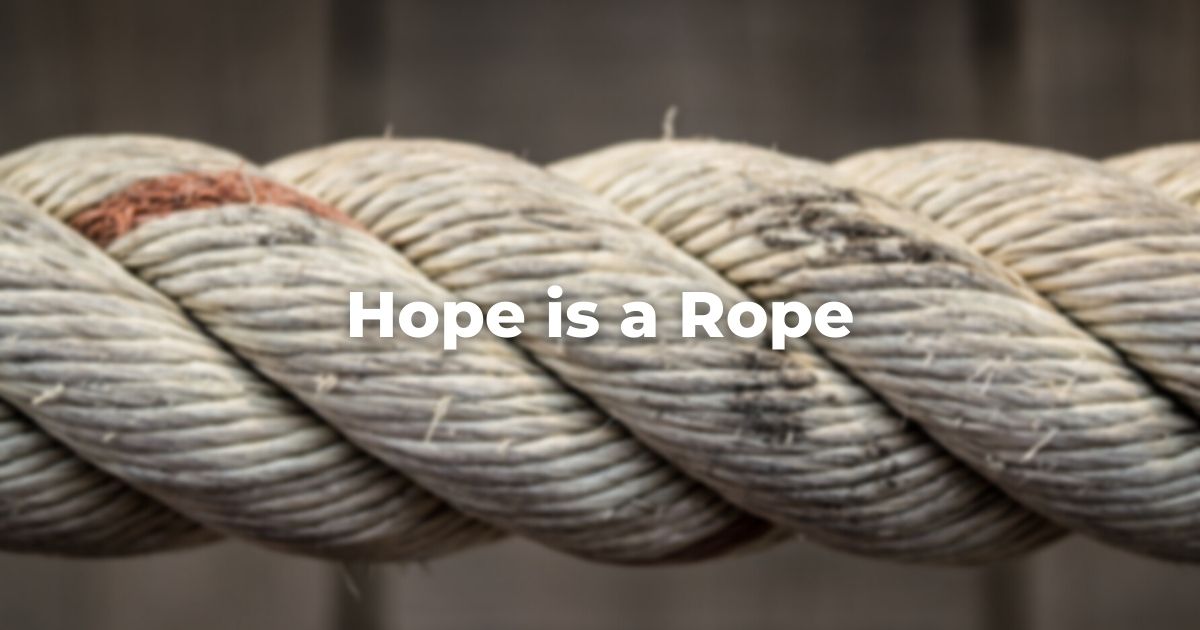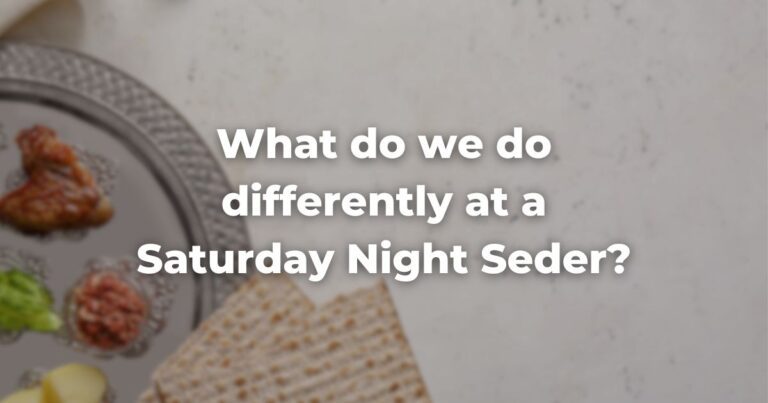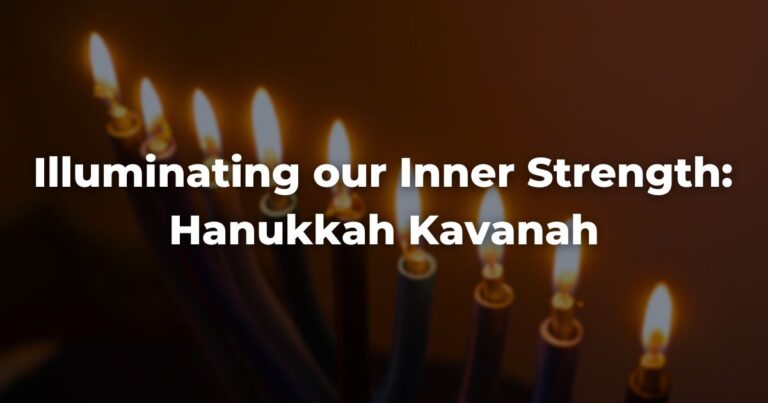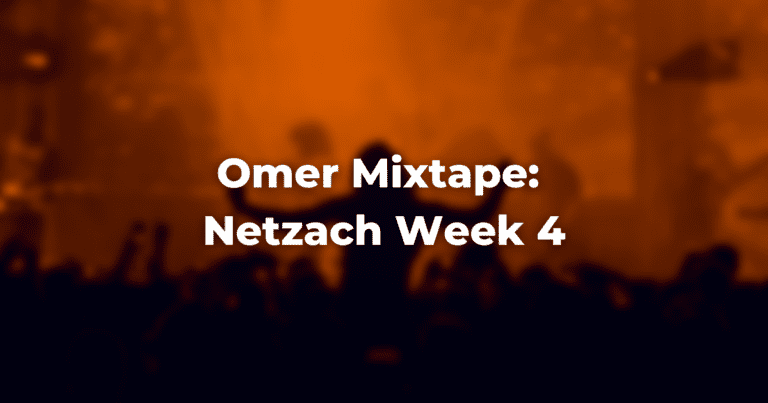(Adapted from Rabbi Friedson’s 5784 Rosh Hashanah sermon.)
When Brazilian Antonio Vicente bought a patch of land and said he wanted to use it to plant a forest, people called him crazy. It was 1973 and forests were seen by many as an obstacle to progress and profit. Deforestation of the Amazon rainforest had begun, just a decade before.
Antonio grew up watching his dad cut down trees for use in charcoal production and to clear more land for grazing cattle. Eventually the farm’s water springs dried up and never returned.
Maintaining forests is essential for water supplies because trees absorb and retain water in their roots and help prevent soil erosion. With some donkeys and a small team, Antonio worked on his 77 acres of land that had been razed for grazing cattle—and set about regenerating.
His neighbors, who were cattle and dairy farmers, told him: “You are dumb. Planting trees is a waste of land. You won’t have any income. If it’s full of trees, you won’t have room for cows or crops.”
What started off as a weekend gig has now become a full-time way of life. More than 40 years later, Antonio—now 86—estimates he has replanted at least 50,000 trees on his property. Now, there are eight waterfalls included in the over 20 water sources. Today, the forest is filled with the sounds of birds and insects.
Once a deforested, lifeless wasteland, now toucans, lizards, opossums, and boars have returned.
Antonio says, “I didn’t do it for money. I did it because when I die, what’s here will remain for everyone. People don’t call me crazy anymore.”
Antonio has inspired others to follow in his footsteps. Reforestation of the Amazon rainforest has gained momentum. It’s an uphill fight as 17 percent of the rainforest has already been lost.
Antonio Vicente saw a problem and decided to be part of the solution. Yet, the problem remains.
Deforestation is just one problem, of many, facing the world today. Politics, climate change, economic crisis, the widening gap between rich and poor, health struggles, job loss, war and international conflicts, corruption—there are many things in the world today to feel hopeless about.
A 2021 Pew Research study found that 68 percent of Americans believe this generation of children will be worse off than their parents. If you’ve ever despaired or felt helpless in the face of personal or global problems, you’re not alone.
I have had those times along with most of us in the room.
There are moments when I look at the state of American Judaism, with synagogues closing left and right, and wonder if my life’s work means anything in the grand scheme of things.
In April, I had surgery to remove a nearly five inch benign tumor deeply embedded in muscle near my sciatic nerve. I’ve been working so hard for the last five months to regain strength after my surgery and still have pain and extreme muscle imbalance. There are times where I focus on how much I’ve lost and it seems nearly impossible to get back to full strength. The uphill battle can feel overwhelming at times. I know I’m not alone in these experiences. Most of us have experienced “dark nights of the soul.”
The TorahRefers to the first five books of the Hebrew Bible, the Tanakh, also called the Five Books of Moses, Pentateuch or the Hebrew equivalent, Humash. This is also called the Written Torah. The term may also refer to teachings that expound on Jewish tradition. Read more is filled with stories of our ancestors who despaired.
This morning’s Haftarah, 1 Samuel 1:1-2:10, featured Hannah. Hannah was the beloved wife of Elkana, who was also married to Penina. Hannah was barren but loved, Penina was fertile but yearned for their husband’s affection. Penina mercilessly taunted Hannah about being barren.
On their yearly pilgrimage, distraught by her situation, Hannah wept and poured her heart out to God. Her lips moved, but no words came out. She was so upset that the priest at the shrine thought she was drunk and scolded her to sober up!
Moses miraculously led the people from Egypt, stood at Mt. Sinai, and, the Torah tells us, spoke to God “panim el panim—face to face.” Yet he too experienced excruciating low points.
Frustrated by the burdens of leadership, disgusted by the Israelites complaining about the food in the desert versus the delectable meals they had as slaves in Egypt, Moses prayed to die rather than deal with this “stiff-necked people.”
The greatest leader and teacher in Jewish history had moments where he didn’t think he could continue on.
Three other prophets also cried out to God to kill them and end their suffering: Jeremiah, Jonah—who we read about on Yom Kippur—and Elijah.
These stories from the Tanach, the Hebrew Bible, are not meant to bring you down. Rather, they point to something incredible about Judaism. We are not meant to live as Pollyannas, pretending like everything is always wonderful. Rather, we are to experience life’s lows and still hold on to hope that the future can be better.
The future CAN be better.
I told you about the low points in the lives of these biblical figures. None of their stories end at the low moments:
Hannah gave birth to Samuel, who became one of the greatest prophets in the Bible.
Moses learned to share the burden of leadership with Joshua and the 70 elders and successfully led the people to the Promised Land.
Jeremiah bought property in Judea just as the attacking Babylonian army surrounded the area. He was confident that he would return to rebuild and he did.
Jonah succeeded in getting an entire city to do teshuvah, and change their ways.
Elijah, Eliyahu HaNavi, is the prophet we believe will usher in the messianic era. We invite him to Passover seders, brises, and invoke his name each Saturday night after Shabbat ends. We do this because this week, this year, may be the time we finally perfect the world. The Torah teaches us that we all experience difficult times and even face despair on occasion. We don’t give up. We don’t lose hope. We don’t believe that the low point is the end, rather it is the beginning of a new chapter.
According to Rabbi Jonathan Sacks, to be a Jew is to hope. He wrote:
“Judaism is not a recipe for blandness or bliss. It is not a guarantee that you will be spared heartache and pain. It is not what the Stoics sought, apatheia, a life undisturbed by passion. Nor is it a path to nirvana, stilling the fires of feeling by extinguishing the self. These things have a spiritual beauty of their own, and their counterparts can be found in the more mystical strands of Judaism. But they are not the world of the heroes and heroines of Tanach.
“Why so? Because Judaism is a faith for those who seek to change the world. That is unusual in the history of faith. Most religions are about accepting the world the way it is. Judaism is a protest against the world that is in the name of the world that ought to be. To be a Jew is to seek to make a difference, to change lives for the better, to heal some of the scars of our fractured world.”
Judaism teaches us that no matter how difficult things are, we must never give up hope. Change is possible. Change may be challenging, but it is possible.
Let’s be clear about what hope means and what it doesn’t mean. Hope is not the same as optimism.
Optimism is the belief that things will get better. Hope is the belief that, if we work hard enough, we can make things better.
I’m going to say that one more time, Optimism is the belief that things will get better. Hope is the belief that, if we work hard enough, we can make things better.
Optimism is passive, and hope is active. Optimism does not require courage, hope requires a great deal of courage.
Does you know what the Hebrew word for “hope”? (Hint: It’s the name of Israel’s national anthem.)
Hope in Hebrew is “Tikvah.” “Hope” is the secondary meaning of “tikvah.”
The primary definition is, “a stretched out cord or rope.”
The root of both words is “kaveh”—kuf, vav, hey, kaveh—and it literally means “to stretch” or “the tension of enduring or waiting.” Ancient minds saw that stretched-out cord as a metaphor for hope. Hope waits in tension but doesn’t break.
Hope is a rope.
The stronger a cord is, the less likely that it will be broken. The stronger hope is, the less likely it will be defeated by challenges. We read in Ecclesiastes 4:12 that two people are better than one, and three are even better for “a three-fold cord is not readily broken.”
Hope is a rope.
Like the many fibers and strands in a rope that strengthen each other under great stress, communities practice hope by strengthening each other, under great stress. We are the many strands in the rope of hopeful community, strengthening each other, so we can deal with difficult situations. Community support prevents us from breaking when it feels like we are at the end of our rope. Community gatherings, life cycle events, and learning together help us braid the rope of community.
Look around your life. We are bound together, twisted and tied together. We are each other’s lifeline. We help give each other the strength to deal with the difficulties in our lives.
The Psalm for the Season of Repentance, traditionally recited daily during the High Holiday season, ends as follows: “Hope in Adonai, be strong, have courage, and hope in Adonai” (Psalms 27:14).
A number of commentators point out that the phrase, “Hope in Adonai” is repeated twice in this short phrase.
In traditional Torah study, there are no superfluous words or phrases. The Rabbis teach that the repetition points to hope as a spiritual posture, or way of being. First, we have hope. Then, we face reality which requires strength and courage. Then, we continue to hope. Perhaps the act of hoping itself strengthens us, making us strong and courageous, which enables us to hope again.
Hope, gain courage, and continue hoping—this is the Jewish way.
Rabbi Sacks wrote, “To be a Jew is to be an agent of hope. Every ritual, every command, every syllable of the Jewish story is a protest against escapism, resignation and the blind acceptance of fate … Judaism is a faith for those who seek to change the world. That is unusual in the history of faith. Most religions are about accepting the world the way it is. Judaism is a protest against the world that is in the name of the world that ought to be. To be a Jew is to seek to make a difference, to change lives for the better, to heal some of the scars of our fractured world.”
During the Rosh Hashanah service, we recite Unetaneh Tokef, a prayer of intense drama.
This prayer is recited both days of Rosh Hashanah and on Yom Kippur. It imagines the world as a courtroom. The Books of Life and Death are open. God is the Judge. The shofar sounds, the angels tremble, the court is in session. We are on trial, awaiting the verdict. Who will live and who will die. What will be our fate in the year to come?
The metaphor is chilling. We do not know which of us will face challenges and struggles this year. There is so much beyond our control. Just as we feel despair creep in—some of us will suffer this year, face setbacks, and have health challenges. Some of us will die. Just as despair creeps in, the prayer takes a dramatic turn:
U’teshuvah, u’tefillah, u’tzedakah ma’avirin et roah hagzerah.
Repentance, prayer, and charity have the power to avert the evil decree. No fate is final. We are not victims of chance and circumstances. We can be proactive and face our challenges head-on.
How?
Through teshuvah, which we do a disservice to translate as “repentance.” A better translation is “returning” which aligns with the Hebrew word for sin—chet—which is better translated as “to go astray.” The idea of repentance in Jewish thought is a return to the path of righteousness.
Rabbi Adin Steinsaltz taught, “Broadly defined, teshuvah is more than just repentance from sin; it is a spiritual reawakening, a desire to strengthen the connection between oneself and the sacred. The effectiveness of teshuvah is thus frequently a function of one’s sense of distance from the sacred. The greater the distance, the greater the potential movement towards renewed connectedness. As one Jewish sage put it, A rope that is cut and retied is doubly strong at the point where it was severed. … All forms of teshuvah, however diverse and complex, have a common core: the belief that human beings have it in their power to effect inward change.”
Tefillah, prayer, is more than reciting the liturgy or singing along with the catchy melodies. It’s communicating with something bigger than ourselves. Tefillah means we are mindful and present. Tefillah offers us a way to express gratitude for the blessings that are ours and give voice to our inner yearnings. Tefillah is a way to reach beyond ourselves for strength and courage.
Tzedakah, too, can change our lives. In Judaism, tzedakah is much more than charity. It comes from the Hebrew word “tzedek,” which is nearly impossible to translate into English. Rabbi Sacks explains that it means justice, but also righteousness, charity, integrity, equity, fairness, and even innocence.
Tzedek is like the marriage of justice and compassion, two concepts that we often view as opposites. Tzedakah in Unataneh Tokef means more than giving generously, although that is important. It means to right some of the wrongs in society.
There are no guarantees in life, but we can always turn to the path of justice, compassion, courage, and truth.
We can act with righteousness and generosity.
Judaism says that fate is not final. We are not what happens to us. The decree has not been sealed. God has given us the one gift that redeems life from tragedy, the gift of freedom. We can choose our response. We can change our habits and behavior. We can stop the cycles that repeat the past over and over. We must never give up hope.
Hope is a rope, woven of strands of courage and community. Hope is a rope, braided with the belief that the past will not endlessly be repeated. Together, we can change it. Is the world perfect? Not yet. But perhaps, with all of us working together, one day it will be.
There’s a beautiful story of a man who saw children starving, injustice flourishing, and violence in the streets. He cried out, “Lord, the world is in such a mess—everything seems wrong. Why don’t you send someone to help and change the world?” The voice of the Lord answered, “I did send someone. I sent you.”
The world is a mess and someone has been sent to change it. You.
May you never lose hope. May you be blessed with the ability to say, “not yet.” May you have the strength and courage to continue to build the reality you yearn for.
Shana Tova
Author
-
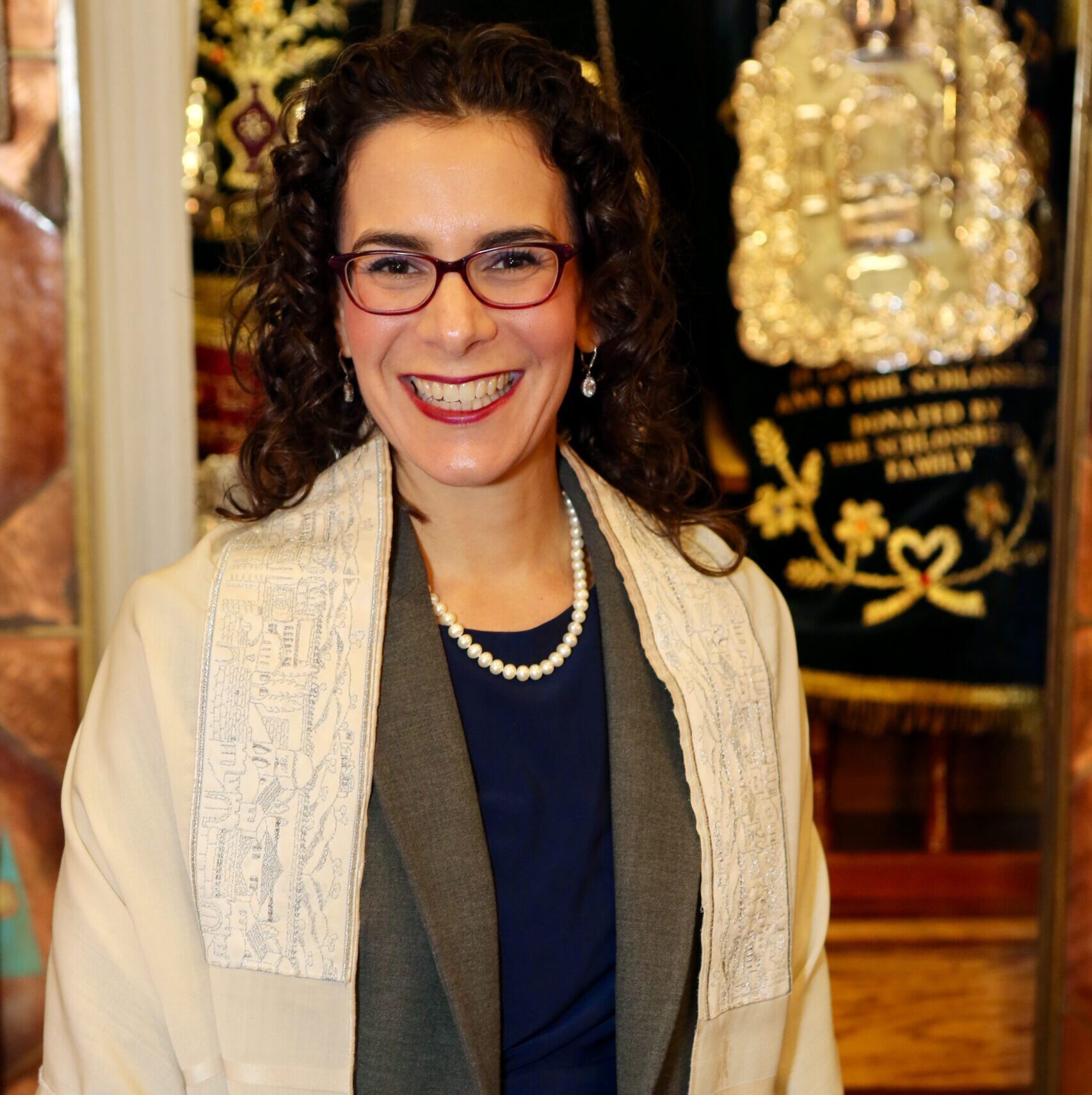
Rabbi Sarah Freidson serves the spiritual, religious, educational, and pastoral needs of Temple Beth Shalom in Mahopac, NY. She believes in the transformative power of relationships. A gifted teacher and storyteller, she enjoys making Jewish learning accessible to individuals of all backgrounds, levels, and interests. She hopes to use her enthusiasm, skills, and talents to strengthen the Jewish community and to help people live better, holier lives through Torah and Jewish teachings.
View all posts

